James Hewitt, a veteran of Games Workshop, on game design and ADHD
You should get out from under the rock you’ve been living under for the past ten years if you don’t know who James Hewitt is. Yes, that large spherical object is known as the sun. Because of all the carbon emissions, it is now warmer.
Now that we have that out of the way, check out Hewitt’s interview with TheGamer from last week, in which he talked about the design process behind the iconic games he has made throughout his career, including Fallout Factions: Nuka-World, which he is currently developing with Modiphius, and the revived Blood Bowl.
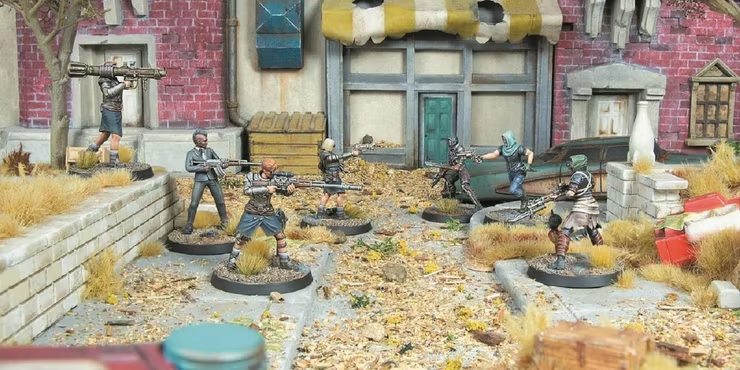
It’s time for another round now that you’ve read that piece and are aware of everything else going on in the globe (Putin and the Tories are still in power). We talked about too much in our wonderful conversation, and I thought Hewitt’s comments about his adult ADHD diagnosis and how transparent he is about it online deserved to be its own story. When I brought up the topic with Hewitt, he got really excited and started by telling me about the time he made the decision to take a closer look at how his brain functions.
Hewitt tells me on a video call, “I saw a tweet by Jamie McKelvie, who’s an awesome comics artist – the current design of Captain Marvel is based off his comic.” I’m following him on Twitter and he’s a buddy of a friend. I had always assumed that I understood what ADHD was—that it was just bothersome kids in stores and all the clichés you hear—until I realized that he had been diagnosed with the disorder. Then, while he was discussing his methodology, I realized, well, hold on.
And then there’s the uncanny sensation that someone is watching you from behind. Yes, this is my life’s narrative. I conducted a ton more research and came across some excellent web resources.
Hewitt jumped right into his internet research and discovered a great resource on the YouTube channel How To ADHD, which provides deep dives, interviews, and tips on living a daily life with ADHD. All of the disparate parts of his life up to that point fell into place at once. By this time, he had left college three times, never worked for longer than two years, and throughout it all, he had believed that it was a “him problem.”
“In tabletop games, you can hit someone with ADHD by throwing a stone at them.” And because you have ADHD, you probably didn’t mean to toss the stone.” – James Hewitt
He says, “All of a sudden, there was this entire community of people who had experienced the exact same thing.” “Oh my god, my brain functions differently; it’s not that I’m failing at life.” It gave me an explanation for a lot of the things that transpired, which helped me realize without making excuses. However, it also helped me understand some of the reasons behind my aptitude for certain topics.
Hewitt realized that his current method was a product of his ADHD and how it affected his mental processes, but he didn’t so much change his approach to game design to fit in with it.
“In tabletop games, you can hit someone with ADHD by throwing a stone at them.” He quips, “And you probably didn’t mean to throw the stone because you have ADHD,” before outlining the more somber aspects of the situation. Since my brain is prone to extrapolation, it’s something that has undoubtedly assisted me in reaching my current position. One of the main things in game design is that once you have a concept, you have to consider how it will interact with the other thirty-six elements if you’re creating a game like 40K, which has a lot of different units.And it truly helps when your brain functions in that manner already.
Yes, there are drawbacks as well. Hewitt observes that he frequently overthinks things and dismisses his own thoughts before they are fully developed or have had enough time to be thoroughly considered. The drawback of having a tangent-loving mind is that you occasionally have to reset it when it becomes too much. Nevertheless, gaining a better grasp of his own brain’s functioning and accepting that fact has “helped [him] hone it and work with it,” as opposed to fighting against it.
Hewitt’s experience with ADHD extends to the murky corners of game creation. It’s a remarkable display of intelligence and focus, but that lethal crunch time can easily lead to designer burnout. He claims that it helps him focus through late nights in the week before a deadline, “working all the hours under the sun, panicking frantically, but still turning out something which I’m actually pretty proud of.” Hewitt’s ability to feel proud of the work he has completed in those circumstances is definitely encouraging, but the fact that he must put up with those long workdays serves as a sobering reminder of the realities of the business.
Hewitt has the option to apply himself in a way that best suits his mental condition every single day at Modiphius, where he presently works four days a week, notwithstanding these tales. But first, he paraphrases Stephen Fry since that’s what his wanton mind does.
titanicus
“It’s like, ‘You can’t control whether it rains, but you can take an umbrella.'” Hewitt continues, “If I’m having a day where my brain isn’t working in a particular way, I’m now much more able to recognize that and go, right, this isn’t a day for doing really in-depth spreadsheet [or] detailed work.” This is something Stephen Fry once said about depression. I plan to either create a prototype or go through some emails and feedback. After looking through the 1,000 emails that are already in my inbox, you may decide to check through some of them or do something else entirely.
Coming to terms with the fact that it’s a chemical imbalance in my brain and that I cannot control it gives me permission to not just say, “No, I need to do this thing today and push on through it and if I’m not, I’m failing.”
Hewitt refers to his current approach to design as “riding the wave” of his ADHD, or, to put it another way, “riding the brainwaves.” However, he found it far more difficult to apply himself at work prior to receiving his diagnosis.
“I had no idea when I worked at Games Workshop.” I only knew that there were days when it was really, really difficult. I would get home feeling so angry, [thinking] I hadn’t accomplished anything today, and I would cry myself to sleep. It’s like a constant flipping sensation. That feeling that there’s always too much going on and you can never quite catch up is something I believe a lot of people with ADHD have experienced. You simply become used to carrying an umbrella; it never goes away.
Hewitt is quite forthcoming about his experiences, both good and bad, and he gives Modiphius credit for giving him the flexibility to work in a way that benefits him. He relates this to the tweet he saw in the past that helped him realize his own diagnosis, so there’s a purpose for it. In addition to helping others who might be experiencing similar difficulties, he wants to show that success with ADHD is possible. At the very least, he is proof of that.
The best thing is that even after I published a lengthy essay on Medium a while back detailing how I was diagnosed in the UK, I still receive messages from people saying, “Hey, I read that and I’m now on the thing, and I I’ve got this, thank you so much.” It doesn’t matter how amazing the game design is; what matters most is that I was able to assist someone in discovering a little bit more about themselves. That’s the winner.




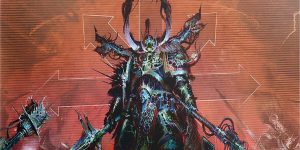

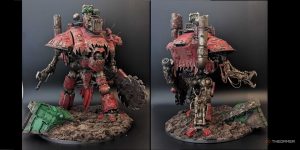
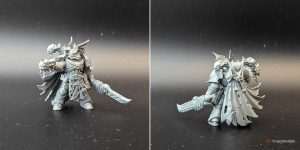
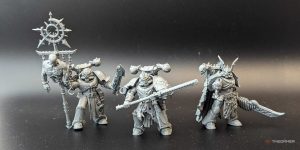
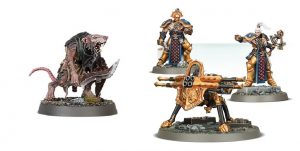
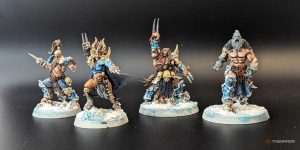



Post Comment